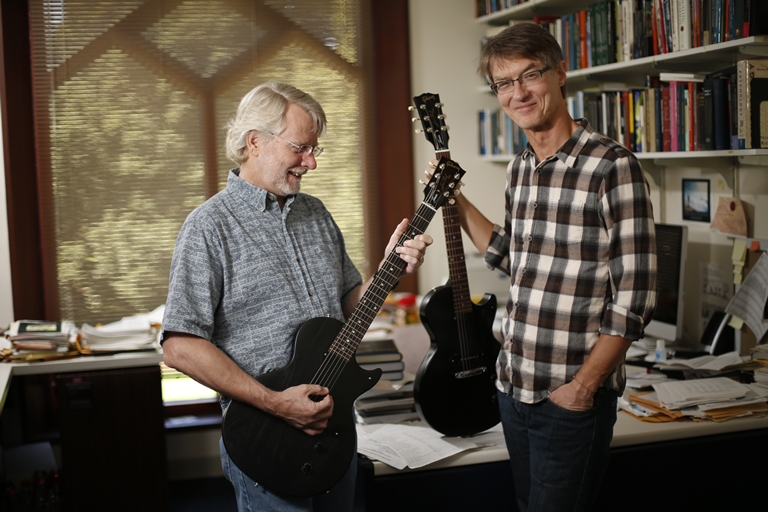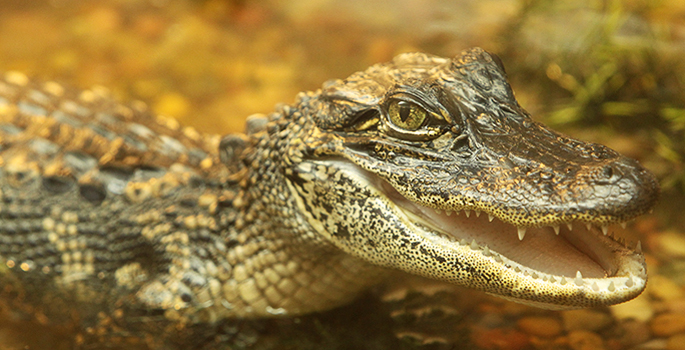Releases
-

Students Displaced by School Closures Need High-quality Alternatives
Ron Zimmer Closing schools can have negative effects on displaced students, but these ramifications can be counteracted if students are moved to schools that are substantially higher-performing. A new study from the RAND Corporation, Vanderbilt University’s Peabody College and Mathematica Policy Research finds that closing low-performing schools does not necessarily… Read MoreNov 16, 2012
-

Study Reveals Effects of Different Teaching Styles on Learning New Words
Researchers at Peabody College are studying how people learn new words in hopes of determining optimal interventions for children who struggle with reading. A new educational neuroscience study offers clues on reading and plasticity in the brain that could lay the foundation for more targeted investigations of what types of… Read MoreNov 16, 2012
-

Former Teachers’ Return to Classroom Feeds Workforce; Gender Differences Prevalent
Former teachers may be an important source for the teacher labor supply, with as many as 30 percent of this population re-entering the field at some point, but who is most likely to return to the classroom after a hiatus? New research from Peabody College examines what factors affect teachers’… Read MoreNov 16, 2012
-

Sustaining, ‘Scaling Up’ Effective Practices of Urban High Schools Focus of Research
Tom Smith The National Center on Scaling Up Effective Schools at Peabody College announced in September the next phase of their partnership with Broward County Public Schools to study and “scale up” effective practices of these Florida high schools. As part of an ongoing, five-year study funded by the U.S. Read MoreNov 16, 2012
-

Peabody Again Ranked Top Graduate Education School
Vanderbilt’s Peabody College of education and human development maintained its No. 1 national ranking for the fourth consecutive year in the U.S. News & World Report annual ranking of graduate schools of education. Peabody has topped the rankings, selected through statistical indicators and expert opinions, since 2009. Its administration/supervision and… Read MoreNov 16, 2012
-

Faculty Notes and Honors
Ellen Goldring Kimberly Bess, assistant professor of human and organizational development, won the 2012 Harold Love Outstanding Community Involvement Award from the Tennessee Higher Education Commission. Laurie Cutting, Patricia and Rodes Hart Associate Professor of Special Education, was appointed to the Language and Communication Study Section of the Center for… Read MoreNov 16, 2012
-

Three Peabody Faculty Members Named AERA Fellows
Richard Lehrer The American Educational Research Association in March selected three Peabody College faculty members to be AERA Fellows. Lynn Fuchs, Richard Lehrer and Joseph Murphy are among 36 scholars nationwide named to the 2012 class in recognition of their exceptional scientific or scholarly contributions to education research or significant… Read MoreNov 16, 2012
-

Murphy Wins Lifetime Achievement Award for Scholarship In Educational Administration
Joseph Murphy Vanderbilt University professor Joseph Murphy won The 2011 Roald F. Campbell Lifetime Achievement Award from the University Council for Educational Administration (UCEA). The Campbell Award recognizes senior professors in the field of educational administration whose professional lives have been characterized by extraordinary commitment, excellence, leadership, productivity, generosity and… Read MoreNov 16, 2012
-

About Ideas in Action
Dean Camilla P. Benbow camilla.benbow@vanderbilt.edu Editor Kurt Brobeck, Director of Communications kurt.brobeck@vanderbilt.edu Contributors Camilla P. Benbow, Kara Furlong, Greer Kelly, Melanie Moran, Jim Patterson, Bill Snyder, Jennifer Wetzel Photography Daniel Dubois, Steve Green, Wolf Hoffmann, Jenny Mandeville, Anne Rayner, John Russell, Ting… Read MoreNov 15, 2012
-

Holiday sale backlash: Do consumers think cheap prices mean cheap products?
Vanderbilt research looks at how consumers value products based on price and popularity. Read MoreNov 15, 2012
-

Peabody Welcomes New Faculty for 2012-13
Melissa Gresalfi Department of Leadership, Policy and Organizations Gary Henry, professor of public policy and education, coming from UNC-Chapel Hill Rachel Robinson, lecturer, coming from Innova8tive Consulting and Hospital Corporation of America Kay Stafford, lecturer, coming from Metropolitan Nashville Public Schools Department of Psychology and Human Development Joe Rodgers,… Read MoreNov 15, 2012
-

Dean’s Message
A new academic year finds Vanderbilt’s Peabody College advancing its agenda of intellectual innovation, rigorous research, and translation of our efforts into practice. In particular, this fall we are excited to launch a new doctoral program in educational neuroscience—the nation’s first. Peabody researchers are collaborating with scholars drawn from throughout… Read MoreNov 14, 2012
-

Why learning guitar is different from learning other instruments
Through a set of experiments, Gordon Logan, Nashville musician Jerry Kimbrough and Matthew Crump (now of Brooklyn College-CUNY) have illustrated that guitarists – and players of other related instruments like mandolin, banjo and bass – tend to acquire their skills differently than most other musicians. Read MoreNov 13, 2012
-

Homeschooling goes under the microscope in new Peabody research
In a first-of-its-kind analysis, Peabody researcher Joseph Murphy examines the highly understudied homeschooling movement and its impact on students and society. Read MoreNov 12, 2012
-

Despite their thick skins, alligators and crocodiles are surprisingly touchy
Researchers have discovered that alligators and crocodiles possess one of the most acute senses of touch in the animal kingdom. Read MoreNov 8, 2012
-

Brain study provides new insight into why haste makes waste
A new study demonstrates how the brain follows Ben Franklin’s famous dictum, “Take time for all things: great haste makes great waste.” Read MoreNov 7, 2012
-

Clean Energy Summit set for Nov. 14 in Nashville
Commissioner John R. Norris of the Federal Energy Regulatory Commission is the marquee speaker at the Southeast Clean Energy Transmission Summit Nov. 14 in Nashville. Read MoreNov 1, 2012
-

Vanderbilt plays role in contests to build Marine combat vehicle
The Defense Advanced Research Projects Agency (DARPA) recently launched FANG Challenges, a set of three next-generation military vehicle design competitions with up to $4 million in prizes to build a new amphibious combat vehicle specifically for the Marine Corps. Vanderbilt’s Institute for Software Integrated Systems (ISIS) is playing a significant role in the contests. Read MoreOct 31, 2012
-

A message from the Dean of Students concerning Hurricane Sandy
Dear Students: Hurricane Sandy has severely affected communities in the Caribbean Sea and on the eastern coast of the United States. Our thoughts are with those affected by this massive storm. This may be a difficult time for many of you, whose families and friends may be in the… Read MoreOct 29, 2012
-

Chinese educators collaborate with Vanderbilt for two-week learning exchange
Peabody's Educational Leadership Learning Exchange will convene to increase knowledge of education policies between the U.S. and China. Read MoreOct 29, 2012